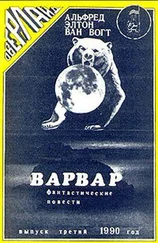An Arab garden is a lesson in austerity, cold and rigorous.
The desert is the Arab’s nature and all other nature is dirty, anti-noble and disturbs his mind. No painting, no flowers. ‘All that is weakness.’
Uncompromising. In the old mosque at Delhi two brass idols were to be seen attached to the stones which formed the floor, in order that they be trodden under foot ipso facto by every one of the faithful who entered.
In the North, a few Hindu orphans embrace Christianity. The Moslem himself is unconvertible. The God of the Moslems is the most absolute. The other gods crumble away before him. And you humble yourself in the dust before this God. You throw yourself down, forehead to the ground. You get up again, and then throw yourself down, forehead to the ground, and so on.
The Arab tongue is a suction and expulsion pump; it contains ululating h’s which could only have been invented out of petulance and the desire to rout the enemy and one’s own temptations.
His writing is an arrow. All alphabets are composed of a letter occupying a space either with crossed strokes (Chinese) or with enveloping strokes (Hebrew, Sanscrit, Mexican, etc.). Now, Arab writing is a single flight, a line made of lines. In the ornamental writing, it goes all in arrows, very straight, from time to time crossed and slashed by an accent. This writing, which is really short-hand, is four times more rapid than Latin writing (the Turks, who have just changed their alphabet, have found this out to their cost).
The vowels do not count, only the consonants; the vowels are the fruits and joys of evil. You do not note them, you slur over them and they are pronounced almost like a muted e , a letter of ashes, retained because there was no way of erasing it.
Thus the consonants do all the work. The consonants — nothing can be said against them; they are privation.
The Arab is noble, neat, ill-tempered.
The Arab allegory is pruned down, there is nothing left of it but a kind of terseness, the right word, a tense situation. .. Brief sentences, a brief sparkle.
The allegory is hurried.
The interior of a mosque is empty, it is a colored prison.
The Arab is courageous and chivalrous.
In every one of his virtues he is the opposite of the Hindus. One has only to count them over.

Though not half as inoffensive as the Armenians and the Jews, the Hindus, on the whole, are a prey. Alexander the Great, the Greek kings, the Huns, the Mongols, the English, the entire world has beaten them; it is eight centuries since they lost their independence.
Even today, one Gurkha (a descendant of the Mongols living in northeast Bengali) can master ten Bengalis and make a hundred of them tremble.
The explanation of all this is not so simple, yet one feels it distinctly.
The reason for it is, first, the spirit of natural defeatedness that is deep-seated in every Hindu. As soon as a royal elephant turns on its heels, the whole army goes to pieces.
Of course, you can never count on an elephant. A fire-cracker puts him to flight. He is calm. But he is not cool at all. At bottom, he is excitable. When things are not going well he gets panicky, and then it takes at least a building to hold him down. Even when he is simply rutting he loses his head. Everybody get out of the way! There’s going to be trouble. Mr. Elephant wants to make love.
Besides, like all weak people, he is vindictive. Better say nothing about the look in his eyes. Any man who is fond of animals is disappointed in his expression.
Imagine an army of five thousand elephants, of as many and more chariots, of six hundred thousand men (that is the kind of armies Alexander had to contend with, as had quantities of conquerors), and you will understand what a bazaar this must have been.
How the Hindus enjoy this abundance (the more the merrier: like the gods of the gopurams), but a little army of ten thousand infantry scatters them into flight.
In addition to that, the Hindus, in the old days, used shantras , or magic formulae.
The value of magic is not to be denied, nevertheless the results are unsatisfactory. The psychic preparation is slow. A man kills more quickly by a stroke of the sword than by magic. His sword he can use at a moment’s notice; he is not obliged to arm himself and to sharpen the edge every time he kills an enemy. Any imbecile who comes along can use a sword, and it is easier to assemble twenty thousand imbeciles than twenty good sages.

The Hindu adores everything. This is not his only sentiment.
He establishes communication, affectionate, fraternal, submissive or tender, with all creatures and transfigures them.
When the Bengali marries, it is not enough for him to put a string with a little gold jewel around the neck of her who will be his wife, which is the sign of married women, and a symbol of marriage. No, he places this little jewel on a coconut in a vase filled with rice, and he offers to it a sacrifice of incense , then he begs those present to be so kind as to bless this jewel. Next, the wedded couple together touch the salt, the rice, the daily food.
Once a year the plowman assembles his plow, his rakes, his hoe, and he bows down to these humble companions of labor, reveres them and begs them to kindly continue giving their assistance.
One day at least the plow is the master and the laborer is the servant. The plow receives the homage with its habitual immobility, and in this manner each worker assembles his tools and humbles himself before them.
The Hindu has been very careful not to establish relationships on an equal footing between himself and others. If he sees a superior, he bows and with his forehead touches the foot of the other.
His wife adores him. She does not eat in his company. But he, on the other hand, venerates his child; they have not that male and female look that one sees in the best society in Europe and which is the horror of today. He calls his son papa . Sometimes, even — delicious submission — he calls him mama .
The Hindu prays to everything. He who does not practice prayer lacks something (to pray is even more necessary than to love).

The Hindu excels in giving a special value to things and to actions. He enjoys making vows.
At Chandernagor I saw a young man and a girl, married twelve years ago to a day, who had made a vow of chastity for a period of twelve years. A conscience director, seated on the ground between the couple, seated likewise on the ground, made a little speech…
I stole a look at the bride, I looked at the bridegroom.
Never, never had I really seen in India a young woman of perfect beauty. They run fast along the road to old age, and somehow, in spite of their modesty, they have an air of defeat, or, well, I do not know what. But with this one, there was an extraordinarily joyful sense of initiation. Something exquisite, very pure, neither thin nor ascetic, that filled her, that she retained, yet it flowed through her. And he had a rare beauty, and rarer still with a Bengali, he was affectionate, modest and reserved. Both in fine health, her age perhaps twenty-four years, his twenty-five years. I shall always see them. Their reserve that was so touching. Think of it, twelve years together, so young, so ‘attractive,’ and loving each other; here was joy unheard-of, quite Hindu, that I would have liked so much to have known.

Читать дальше













